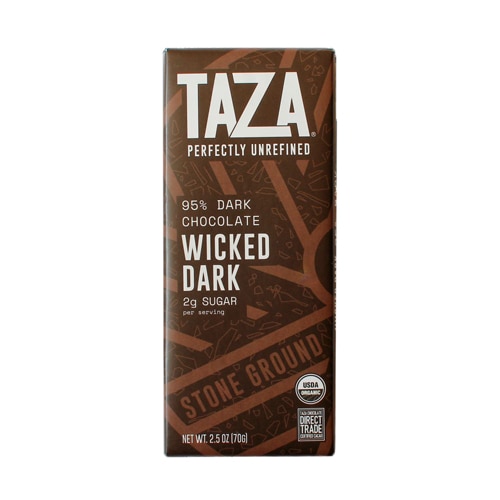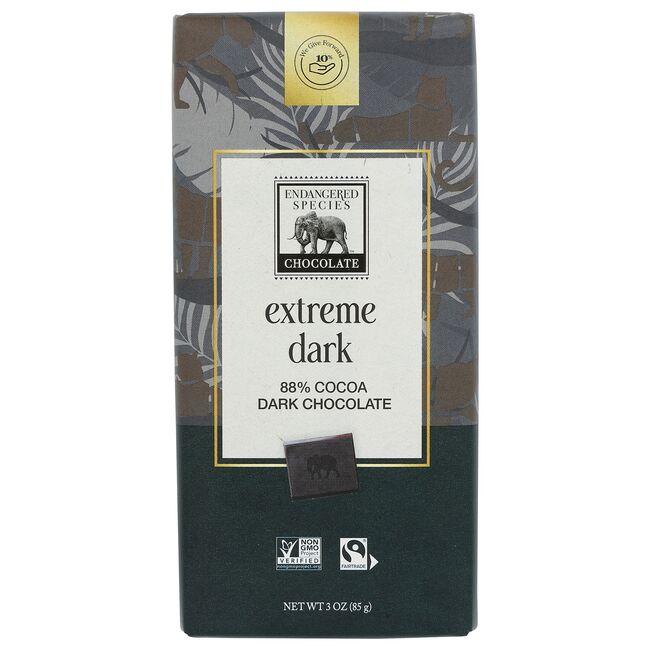
Posted on 07/15/2022 1:17:21 PM PDT by Red Badger
Eating chocolate is typically discouraged by nutritionists, as it is can be high in calories, fat and sugar. Cocoa, however, chocolate's primary ingredient derived from the seed of the cacao plant, has been found to have numerous qualities that could be beneficial for both the body and mind.
Most notably, pure cocoa is highly nutritious and is a powerful source of antioxidants, substances that can prevent or slow down cell damage caused by free radicals. Free radicals are unstable and highly reactive molecules produced by the body when responding to environmental stresses, which are associated with aging and disease. In addition, cocoa has been found to help regulate the blood pressure and prevent cognitive decline.
Despite these potentially beneficial properties, chocolate bars rarely contain cocoa alone, but also sugar, oils, butter, and other ingredients that are unhealthy for the body. The healthiest type of chocolate is thus likely to be dark chocolate comprised of high percentages of cocoa.
Elham Kalantarzedeh, Maryam Radahmadi and Parham Reisi, three researchers at Isfahan University of Medical Science in Iran have recently carried out a study on rats investigating the impact of different dark chocolate dietary patterns on synapses in a specific region of the brain, known as the hippocampal CA1 area. Their findings, published in Nutritional Neuroscience, suggest that dark chocolate consumption could have beneficial effects on the brain of individuals exhibiting chronic isolation stress.
"Although stress causes brain dysfunction, consumption of dark chocolate (DC) has positive effects on brain functions," the researchers wrote in their paper. "The current study investigated the impact of different DC dietary patterns on synaptic potency and plasticity in the hippocampal CA1 area, as well as food intake and body weight in rats under chronic isolation stress."
Essentially, Kalantarzedeh and her colleagues wanted to determine whether eating dark chocolate in different degrees affected the potency and plasticity (i.e., adaptability over time) of synapses (i.e., tiny gaps across which different neurons communicate with each other) in the hippocampal CA1 area.
To do this, they took 35 rats and divided them into five groups of 7, each of which was fed dark chocolate while experiencing chronic isolation stress, with each group following a different dietary pattern. The three dark chocolate dietary patterns they tested were dubbed stress-compulsory, stress-optional and stress-restricted.
"The stressed rats on a compulsory diet only received DC and the ones on an optional diet received unlimited chow and/or DC," the researchers wrote in their paper. "Also, the stressed rats on a restricted diet each received chow freely and only 4 g DC daily. Subsequently, the slope and amplitude of field excitatory postsynaptic potentials (fEPSPs) were assessed based on the Input-Output (I/O) curves and after the long-term potentiation (LTP)."
The researchers also measured the food intake and body weight of the rats they tested on at the beginning and end of their experiment. Interestingly, they found that all the dark chocolate dietary patterns reduced both the rats' food intake and their body weight. The strongest effects, however, were those caused by compulsory and restricted dietary patterns.
"The fEPSP slope and amplitude in the I/O curves and after LTP decreased significantly in the stress group compared to the control group," the researchers wrote in their paper. "Although the slope and amplitude both enhanced non-significantly in the optional DC diet, these parameters changed significantly in both compulsory and restricted DC dietary patterns compared to the stress group. Also, food intake and body weight decreased significantly in all DC groups."
Overall, the experiments carried out by this team of researchers suggest that the systematic consumption of dark chocolate could reverse the adverse effects of chronic isolation stress on the synaptic potency and plasticity of the hippocampal CA1 area. This would in turn have beneficial effects on both memory and learning.
As their study was carried out in rats, however, to be applicable to humans, their findings would need to be validated on a human sample of participants. If their results were confirmed in future studies involving humans, their work would offer evidence of the positive effects of cocoa on the brain and on cognitive abilities.
Explore further
Dark chocolate may do your heart good this Valentine's Day
More information: Elham Kalantarzadeh et al, The impact of different dark chocolate dietary patterns on synaptic potency and plasticity in the hippocampal CA1 area of the rats under chronic isolation stress, Nutritional Neuroscience (2022).
DOI: 10.1080/1028415X.2022.2088946
© 2022 Science X Network


eating dark chocolate on the brain
Is that an exotic French food?

What if you eat dark chocolate on a plate?
I LOVE dark chocolate. And since most other people don’t, I’m always getting gifted dark chocolate by other people at work or home who don’t want the ones they got in a box of assorted chocolates or a variety pack. Yum!.
Yummy stuff, too
For several years (since turning 80), I’ve consumed 1 small block of Lindt Dark 78% cocoa each day to keep the old prostate healthy...
Urologist who wielded the laser to drill a better channel through the old enlarged prostate when I was 80 recommended it...
Eight years later, it has worked great...
I could have skipped all the rest. This was literally the bottom line of the study.

The bar says "Serving size = 1 oz"
My Dad’s recipe, dark chocolate and red wine.
Lived to be almost 94 with little to no mental issues.
Maybe someone should tell hunter biden to cut his coke w/cocoa.
Don’t they have headline editors anymore?
I’m visualizing a Reese‘s peanut butter cup commercial here.
Two zombies talking…
“You got dark chocolate on my brain.”
“You got brain on my dark chocolate.”
What are the effects if you eat it on the sofa?
What percentage is the minimum to produce a benefit? I like 70-80% cocoa.
I prefer to eat mine sprinkled on vanilla ice cream.
Yep, a time-honored classic combo. A small piece of dark chocolate left to melt on the tongue, followed by a sip of whiskey - that can be special as well. The chocolate sort of bonds with the evaporating ethanol, which carries the "flavor" all through your sinuses. Wine doesn't quite have enough alcohol in it to produce that effect. It truly has to be tried, mere description does not do the experience justice.
Disclaimer: Opinions posted on Free Republic are those of the individual posters and do not necessarily represent the opinion of Free Republic or its management. All materials posted herein are protected by copyright law and the exemption for fair use of copyrighted works.